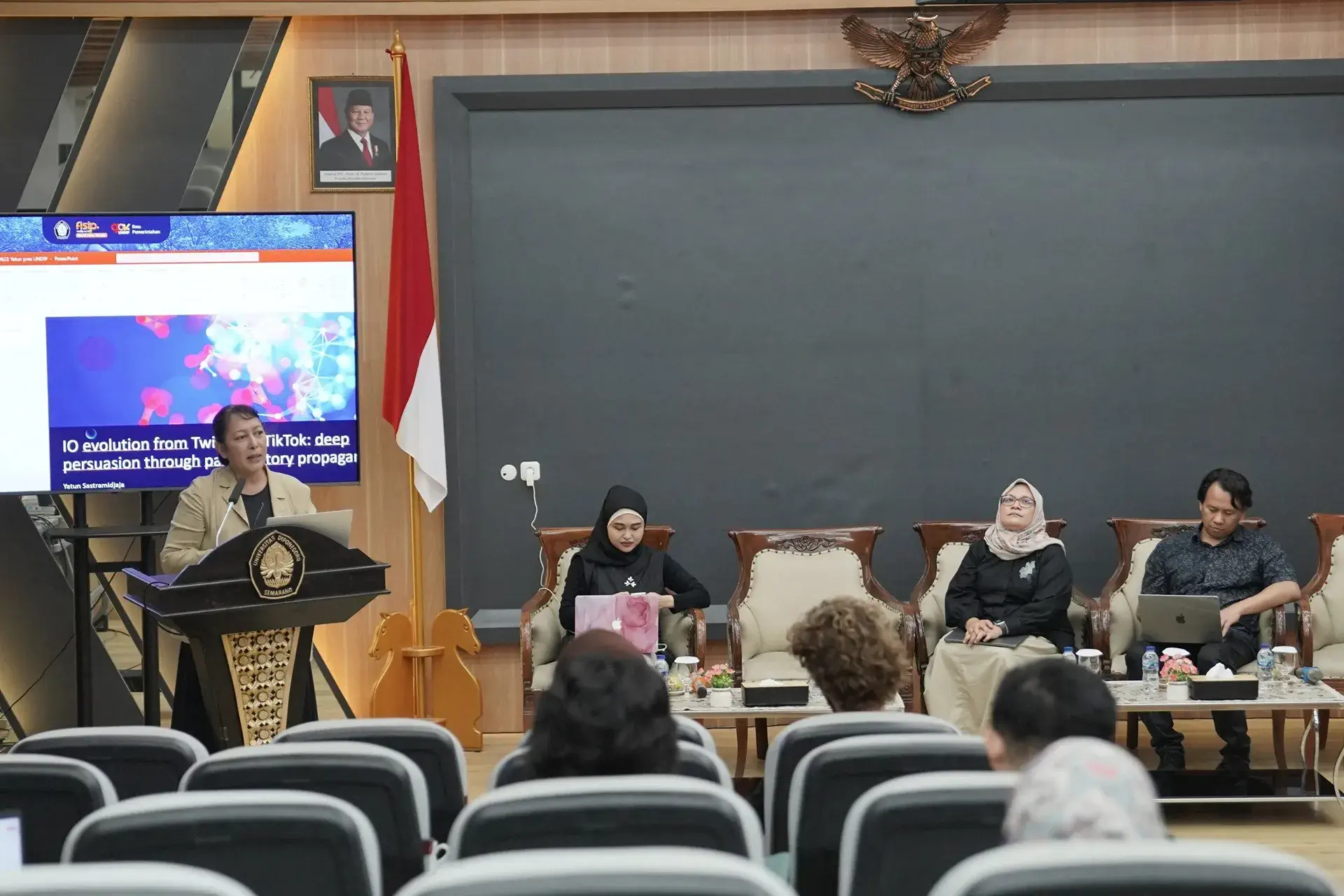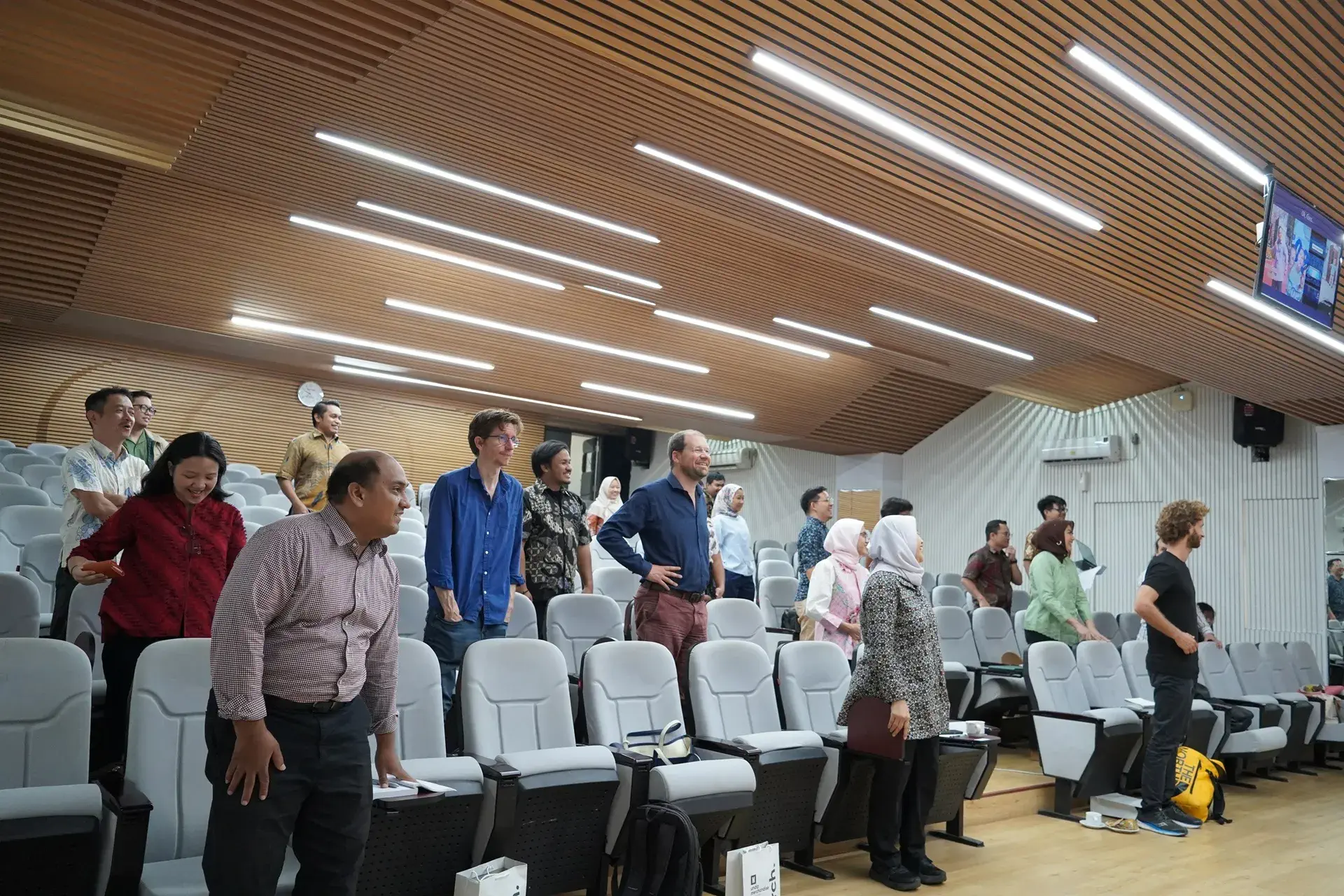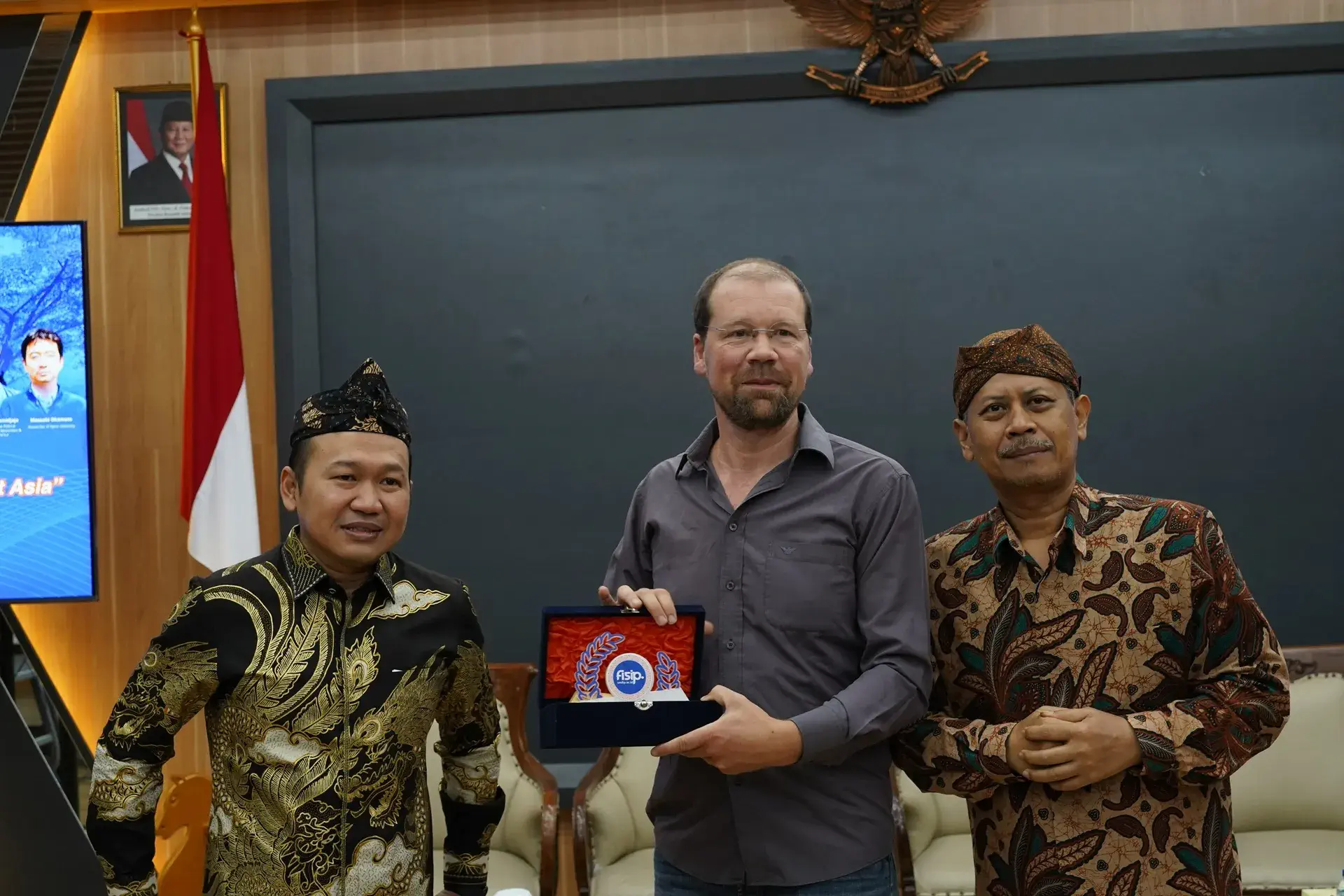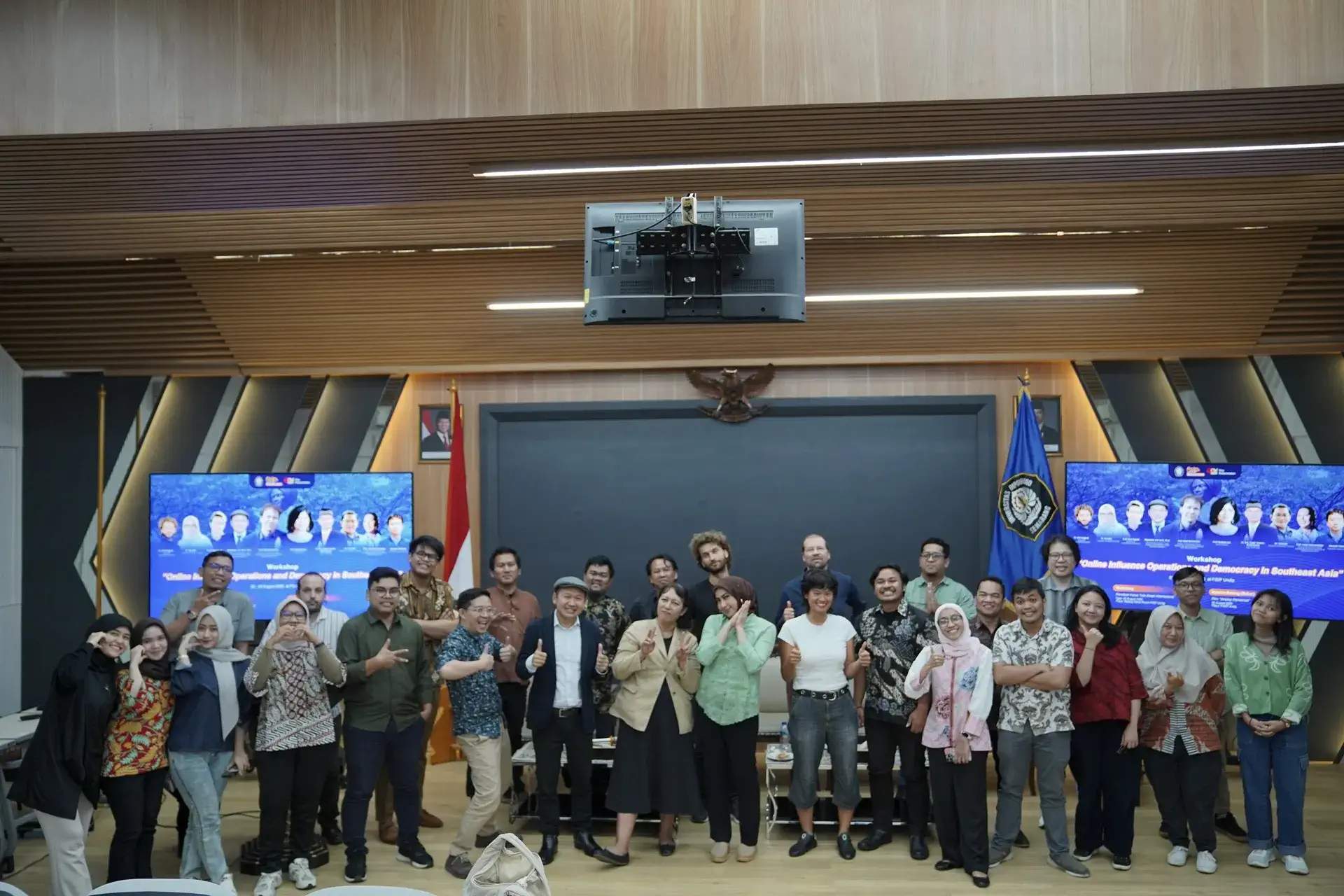Semarang, August 22–23, 2025 – The Faculty of Social and Political Sciences (FISIP), Diponegoro University, hosted an international conference titled “Online Influence Operations in Southeast Asia” on August 22–23, 2025. The two-day conference brought together academics, researchers, and experts from Indonesia and abroad to discuss the dynamics of digital influence operations in Southeast Asia, particularly within the context of contemporary socio-political issues.
The conference opened with remarks by Dr. Teguh Yuwono (Dean of FISIP UNDIP) and Wijayanto, Ph.D. (Vice Rector IV UNDIP), followed by a keynote lecture delivered by Prof. Merlyna Lim entitled “Platforms, Politics, and Publics: The Algorithmic Manufacture of Consent in Southeast Asia.” In her presentation, Lim emphasized how social media algorithms shape public opinion and reinforce political practices in the region.
Day One featured panel discussions on various topics, including domestic influence operations in Indonesia, the Philippines, and Thailand (Kris Ruijgrok), the conceptualization of the disinformation industry (Ratna Aini Hadi), as well as TikTok content manipulation related to the Indonesian military (Nicolas Kriswinara and Samuel Gema). Ross Tapsell highlighted how digital authoritarianism has developed through increasingly sophisticated influence operations.
 |
 |
On Day Two, the discussions centered on the evolution of digital propaganda. Dr. Kris Ruijgrok commented on Yatun Sastramidjaja’s research, questioning the boundaries between persuasion and propaganda. Ary Hermawan added that while cyber troops often operate in small numbers, the resulting snowball effect can generate large-scale propaganda on social media.
Meanwhile, Salvatore Simarmata analyzed attack campaigning during the 2019 Indonesian presidential election and its impact on shifting public support through negative narratives. Sylvia Savitri highlighted how fan culture can intensify polarization, even sparking boycott calls against public figures affiliated with political actors. Prof. Ward B. further noted the importance of comparing Indonesia’s polarization with other countries to determine whether it has positive or negative implications for democracy.
In another session, Moses H. Siregar presented an Instagram field experiment showing how cyber troops do not merely persuade but create political conformity that is more effective than individual persuasion. The discussion also highlighted the “digital coup” within Indonesia’s Democratic Party as an example of how social media can weaken political opposition.

The two-day conference demonstrated how social media has become a central arena for shaping public opinion, political contestation, and digital authoritarian innovation. The emergence of cyber troops remains both a challenge and a critical subject of academic inquiry. The diversity of perspectives presented is expected to enrich scholarly debates and provide deeper understanding of digital influence operations in Southeast Asia.
Writer: Rr. Angelina Belicia Putri
Media Contact:
Faculty of Social and Political Sciences – Diponegoro University
Email: fisip@undip.ac.id | Phone: (024) 7465407

